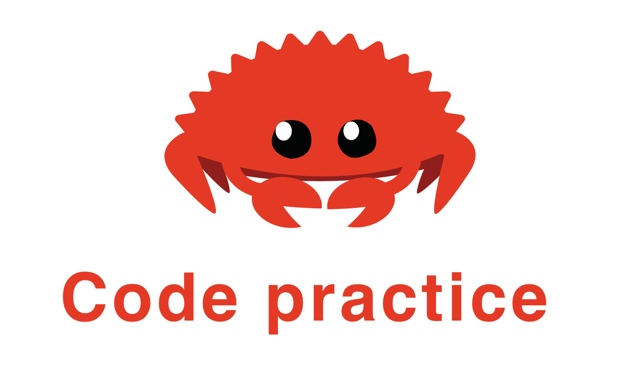Rust代码优化-闭包惰性求值

背景
写代码时,经常会遇到从Option或Result中取值得问题,为了避免使用unwrap(),使用了if let Some(xxx)或if let Ok(xxx)
的代码表达。之前的文章也介绍了这种写法,惯用法也自以为习以为常。
- 1.最近一次代码在发PR时,下面这段代码作者建议,又有了写收获:
#![allow(unused)] fn main() { struct Message(usize); fn get_msg(msg: &Option<Message>) -> String { let mut rep_msg = "Ok".to_string(); if let Some(msg) = msg { rep_msg = format!("{}", msg.0) } rep_msg } }
- 2.为了避免
resp_msg使用mut,建议改使用下面这种方式:
#![allow(unused)] fn main() { fn get_msg(msg: &Option<Message>) -> String { let rep_msg = if let Some(msg) = msg { format!("{}", msg.0) } else { "Ok".to_string() }; rep_msg } }
通过赋值方式传递rep_msg,避免了rep_msg的可变性。
- 3.本身上面代码看起来还是有点绕口,为了表达直观,通过代码块
{},可表达为下面方式:
#![allow(unused)] fn main() { fn get_msg(msg: &Option<Message>) -> String { let rep_msg = { if let Some(msg) = msg { format!("{}", msg.0) } else { "Ok".to_string() } }; rep_msg } }
- 4.但是上面代码看起来还是有点啰嗦,我们继续优化,可以采用
Option的组合子方法,链式表达,修改如下
#![allow(unused)] fn main() { fn get_msg(msg: &Option<Message>) -> String { msg.as_ref().map(|msg| format!("{}", msg.0)).unwrap_or("Ok".to_string()) } }
是不是使用combinator的模式,代码更简单、直观了。但是,这里还是有点缺陷,我们继续往下看:
- 5.如果使用
cargo clippy的使用,clippy会经常提示我们修改这段逻辑:
#![allow(unused)] fn main() { msg.unwrap_or("Ok".to_string()) ^^^^^^^^^^^^^^^^^^^^^^^^^^^^^^^^^^ help: try this: `unwrap_or_else(|| "OK".to_string())` | }
为什么呢?对于unwrap_or,即使不使用其值,参数"Ok".to_string()也将进行求值。对于unwrap_or_else,参数接收一个闭包,
当触发unwrap_or_else调用时,通过传递函数(闭包)进行惰性求值(lazy evaluation)计算,提升程序性能,那我们改造下
#![allow(unused)] fn main() { fn get_msg(msg: &Option<Message>) -> String { msg.as_ref().map(|msg| format!("{}", msg.0)).unwrap_or_else(||"Ok".to_string()) } }
从第一个函数看到现在,有么有收获呢?欢迎大家在评论区留言,一起交流。
最后
推荐大家在Rust项目中,将 clippy 这个插件使用起来,优化程序的结构。让优秀成为一种习惯。